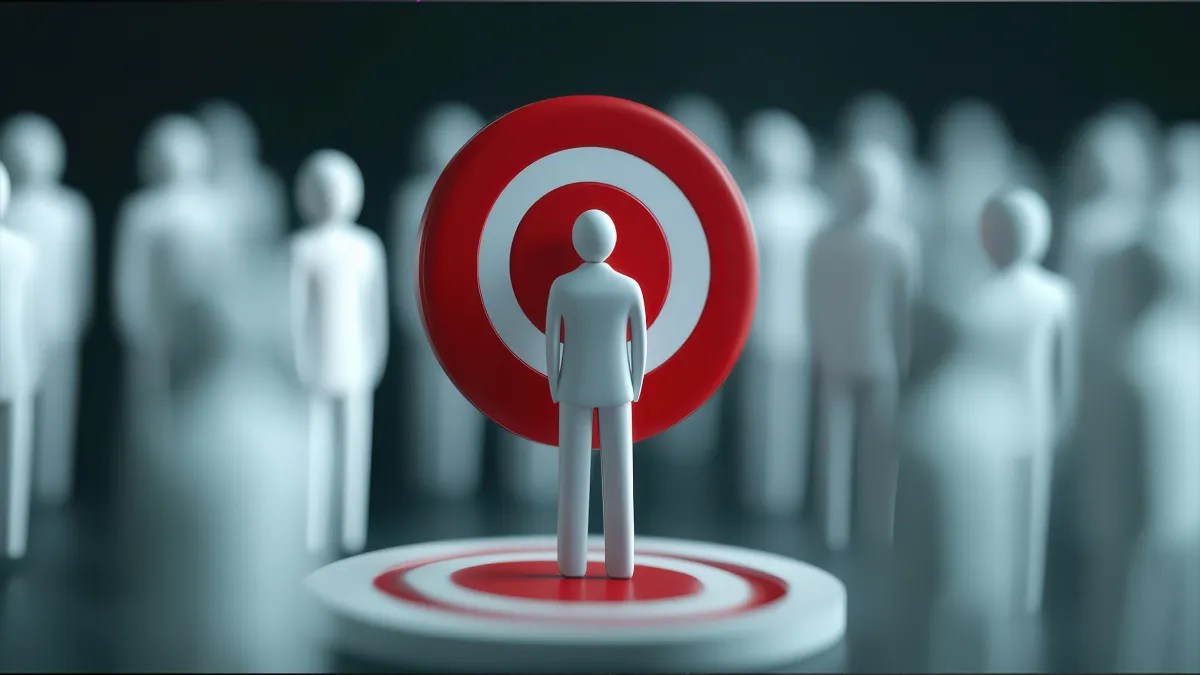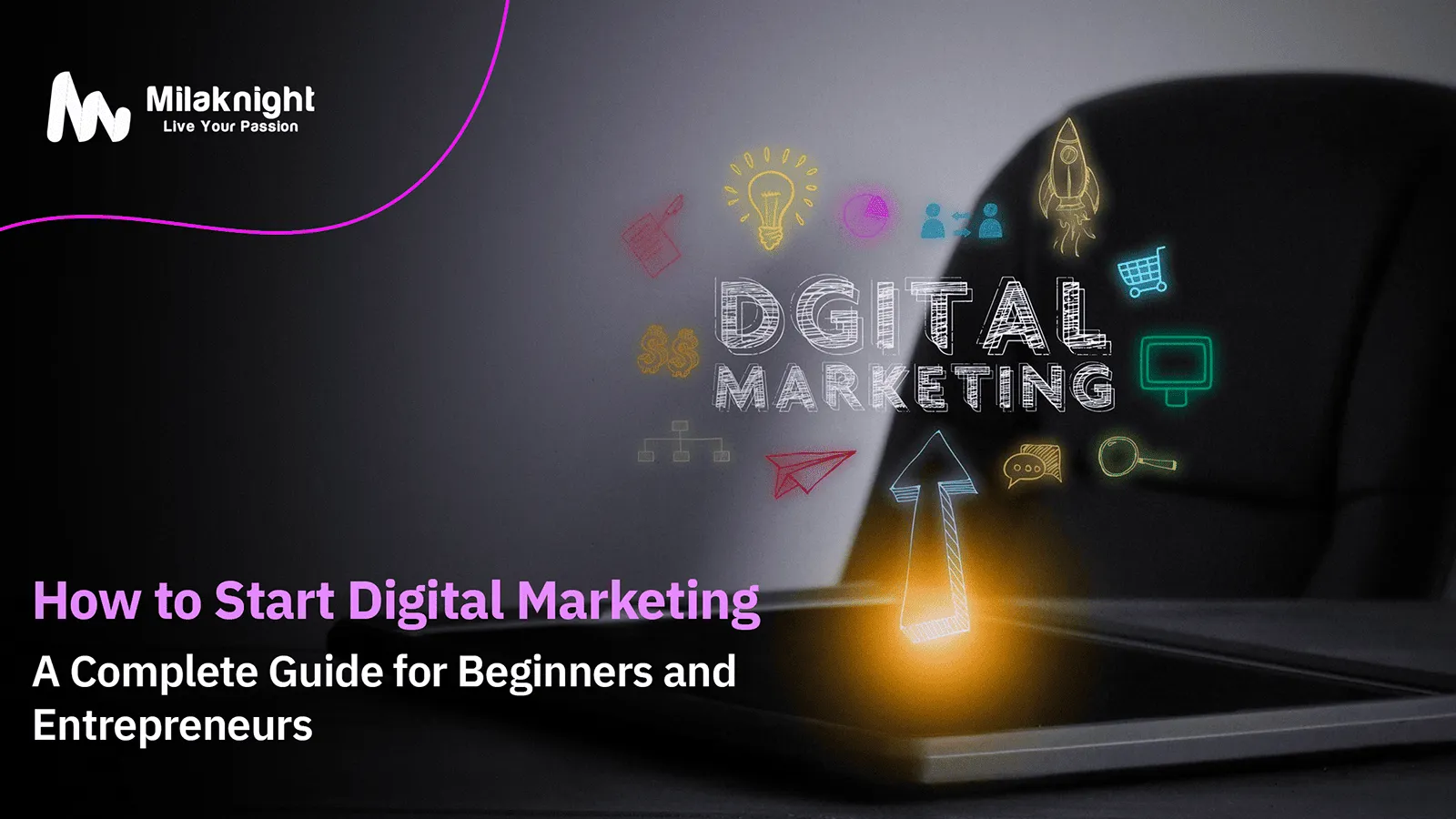Digital marketing has become the cornerstone of modern business success. Whether you want to promote your own brand, start a new business, or build an agency, understanding how to start digital marketing is essential in today’s competitive landscape. This article will guide you step-by-step on how to get started, build your skills, and launch a successful digital marketing career or business.
What is Digital Marketing?
Digital marketing refers to the promotion of products or services through online channels such as search engines, social media platforms, email, and websites. Unlike traditional marketing, it allows precise targeting, measurable results, and real-time optimization.
Why Learn Digital Marketing?
- It's an ever-growing field with high demand for skilled professionals.
- Offers flexibility — work freelance, for companies, or start your own agency.
- Enables direct interaction with customers and data-driven decisions.
- Critical for business growth in virtually every industry.
How Can I Start a Digital Marketing Business?
Starting a digital marketing business can be highly rewarding but requires careful planning. Here’s how you can begin:


1. Build Your Skills and Knowledge
Before launching a business, you need a solid understanding of digital marketing fundamentals such as:
- Search Engine Optimization (SEO)
- Pay-Per-Click (PPC) Advertising
- Content Marketing
- Social Media Marketing
- Email Marketing
- Analytics and Reporting
You can learn these skills through online courses, tutorials, or certifications from platforms like Google Digital Garage, HubSpot Academy, or Coursera.
2. Define Your Niche and Services
Digital marketing covers many specialties. Determine which area you want to focus on based on your strengths and market demand. Common niches include:
- Social Media Marketing
- SEO and Content Marketing
- Paid Advertising (Google Ads, Facebook Ads)
- Email Marketing
- Influencer Marketing
Defining a niche helps you stand out and target clients more effectively.
3. Create a Business Plan
Outline your business goals, target market, pricing model, and marketing strategy. This plan will guide your efforts and help secure financing if needed.
4. Build Your Online Presence
Your website and social media profiles should reflect your expertise. Showcase case studies, client testimonials, and content that educates your audience.
5. Network and Acquire Clients
Start by reaching out to your contacts and offering your services at discounted rates to build a portfolio. Use platforms like LinkedIn, Upwork, or Fiverr to find clients.
Read More: What’s Your Marketing Personality | Use Your Strengths
How to Build a Social Media Marketing Agency
If you are specifically interested in social media, building a social media marketing agency requires:
- Mastery of various social media platforms (Facebook, Instagram, LinkedIn, TikTok)
- Ability to create engaging content and ad campaigns
- Understanding of social media analytics and tools
- Client management and communication skills
You can start small with local businesses, then scale as you gain experience and results.
How to Start Your Own Digital Marketing Business: Step-by-Step
- Research the Market: Identify your potential clients and their pain points.
- Set Up Your Business: Register your business, choose a name, and create branding.
- Develop Your Service Packages: Offer clear, value-driven packages (e.g., monthly social media management, SEO audits).
- Invest in Tools: Use marketing tools like Hootsuite, SEMrush, Google Analytics to deliver better results.
- Hire or Outsource: As your workload grows, consider hiring freelancers or employees.
- Continuous Learning: Digital marketing evolves rapidly; stay updated with trends and algorithm changes.
How to Get Started in Online Marketing: Tips for Beginners
- Start your own blog or YouTube channel to practice content creation.
- Volunteer to manage social media for a friend’s business.
- Participate in online marketing forums and communities.
- Set measurable goals for every campaign you run.
- Track results and optimize continuously.
Common Questions: How to Start Working in Digital Marketing
No, many successful digital marketers are self-taught or trained through certifications.
It varies, but with consistent effort, you can gain practical skills within 3-6 months.
Absolutely, freelancing is a great way to build experience.
Yes, with the right skills and clients, digital marketing can be very lucrative.
Read More: What’s Your Marketing Personality | Use Your Strengths
Understanding Your Target Audience: The Foundation of Digital Marketing Success
One of the most critical steps when starting in digital marketing is identifying and understanding your target audience. Without a clear picture of who you are trying to reach, your marketing efforts can become ineffective and costly. Conduct thorough market research to learn about your audience’s demographics, interests, online behavior, and pain points. Use tools like Google Analytics, Facebook Audience Insights, or surveys to gather data. Knowing your audience allows you to tailor your content, choose the right channels, and create compelling messages that resonate, increasing engagement and conversions.
Building a Strong Personal Brand as a Digital Marketer
Whether you aim to start your own digital marketing business or work freelance, building a strong personal brand is essential. Your brand represents your reputation, expertise, and the unique value you bring to clients. Start by creating a professional website or portfolio showcasing your skills, certifications, and case studies. Be active on social media, especially LinkedIn and Twitter, sharing insights and engaging with industry conversations. Consistently producing valuable content like blog posts or videos can establish you as a trusted authority. A strong personal brand not only attracts clients but also opens doors to collaborations and partnerships.
Read More: What’s Your Marketing Personality | Use Your Strengths
Leveraging Analytics to Improve Your Digital Marketing Strategy
Starting in digital marketing means learning not just to create campaigns but also to measure and improve them. Analytics tools such as Google Analytics, Facebook Ads Manager, and email marketing dashboards provide critical data on how your campaigns are performing. Pay attention to metrics like click-through rates, conversion rates, bounce rates, and ROI. Use this data to identify what’s working and what isn’t, then adjust your strategies accordingly. Continuous analysis and optimization differentiate successful marketers from the rest and ensure your digital marketing efforts produce the best possible results over time.
Final Thoughts
Starting in digital marketing involves learning, experimentation, and persistence. Whether you want to launch your own agency or work as a freelancer, understanding the basics and building a strong portfolio are key. Keep learning, stay adaptable, and focus on delivering value to your clients.
